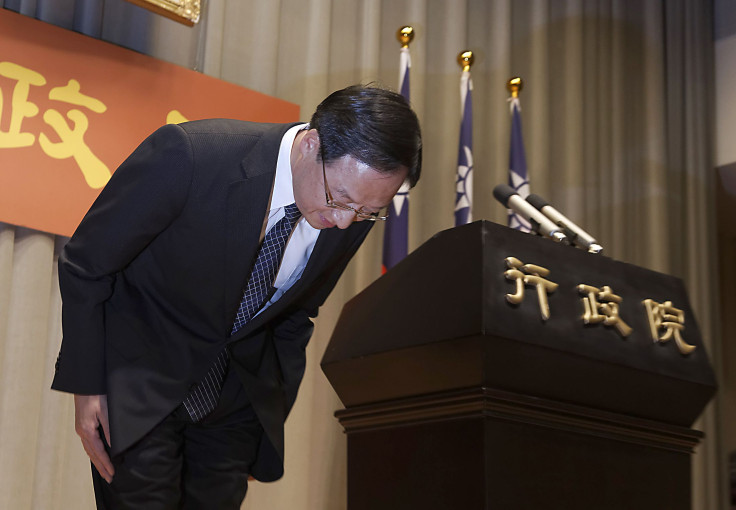Taiwan's Premier Resigns After Party Loses Election Following Protests Over Trade Deal With China

Taiwan’s premier Jiang Yi-huah resigned Saturday after his ruling Nationalist Party, the Kuomintang, or KMT, got only 40 percent of the vote, while the Democratic Progressive Party, or DPP, received 47 percent of the vote, CNN reported. The loss was seen as a response to a trade agreement the premier signed with mainland China in Shanghai last year: The deal prompted demonstrators dubbed the Sunflower Movement by the media to occupy Parliament and protest in the streets.
Critics of the trade agreement worry that an alliance between the longtime adversaries would give China too much influence over Taiwan and threaten small businesses. China and Taiwan -- officially the People’s Republic of China and the Republic of China, respectively -- separated in 1949 following a civil war, but China still claims Taiwan as its territory.
“This is no time to be sad ... but we will implement reform measures as soon as possible,” said Taiwan President Ma Ying-jeou, who is also KMT chairman. Both Jiang, who occupied an appointed position, and KMT Secretary-General Tseng Yung-chuan stepped down after the election loss, and the government said there would be a cabinet reshuffle probably by next week.
Beijing has been working to increase ties with Taipei, so it is wary of the DPP because the party has stated its disapproval of Taiwan and China reunifying, the Wall Street Journal reported. Analysts read the KMT defeat as a sign that voters don’t believe the government has adequately addressed wage and income inequality, the newspaper said.
“From this KMT defeat, we have learned a lesson,” the Journal quoted DPP Chairwoman Tsai Ing-wen as saying. “If a government doesn’t stand on the side of the people, the people can take back the power at any time.” Observers believe Tsai could be in the running for president in the 2016 election.
© Copyright IBTimes 2024. All rights reserved.






















